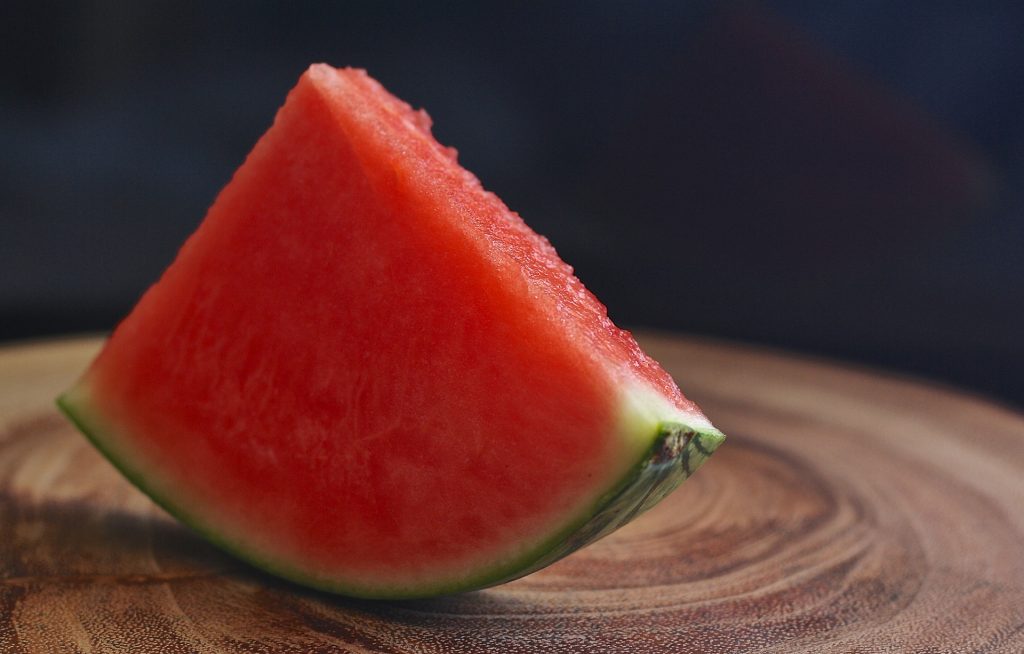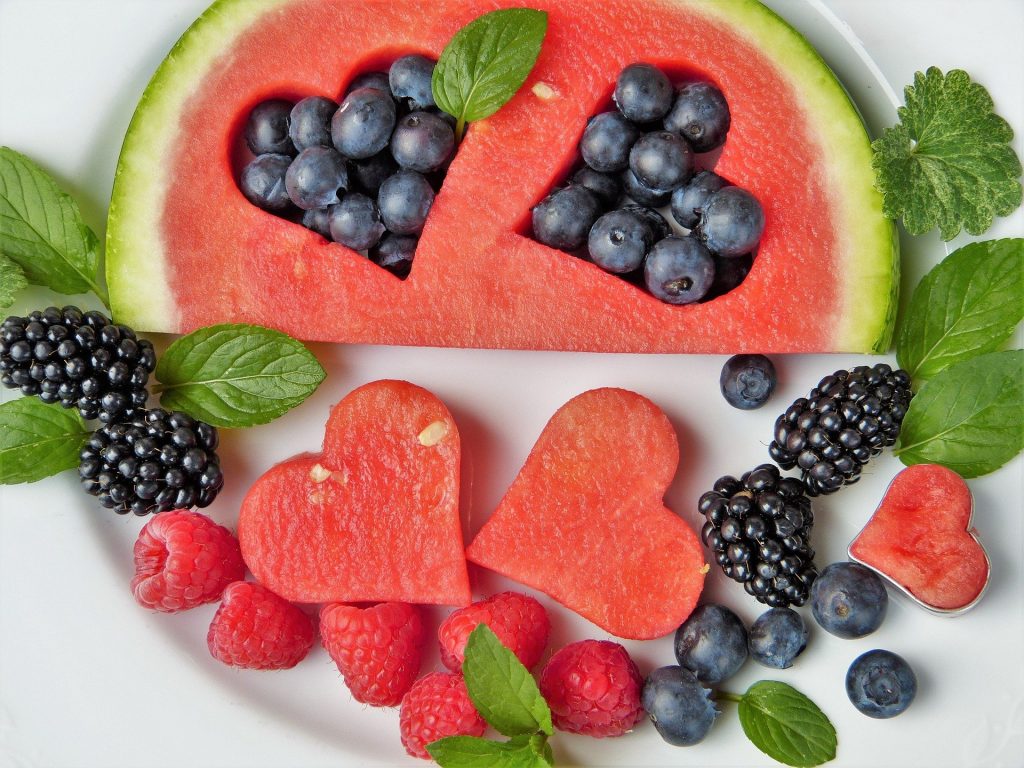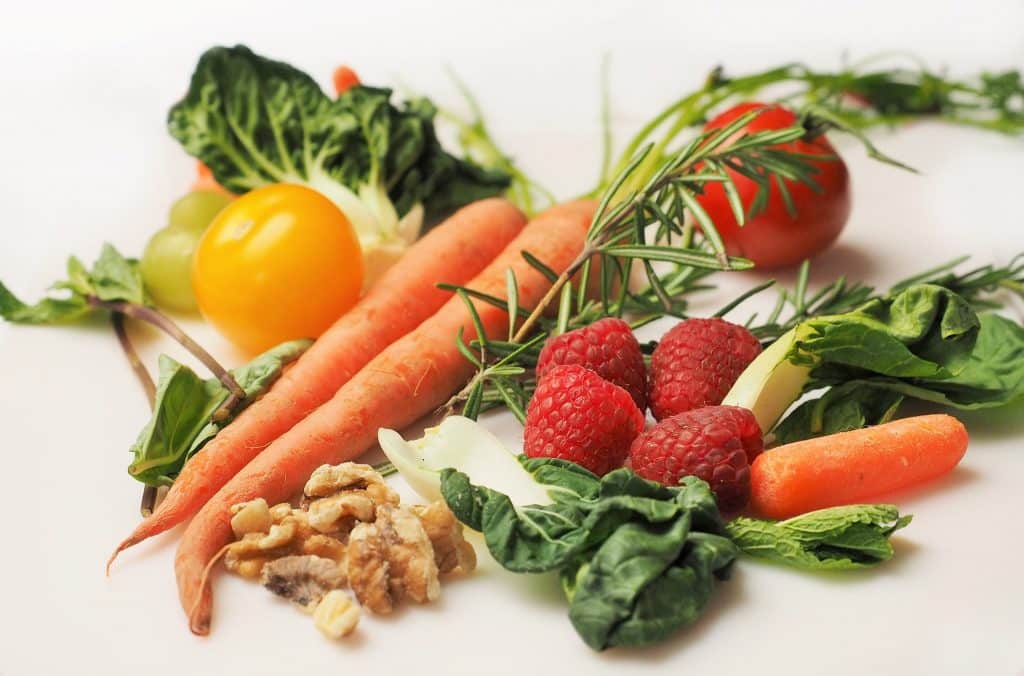Watermelon is a delicious and refreshing fruit that is also good for you.
It contains only 46 calories per slice, but is high in vitamin C, vitamin A and many healthy plant compounds.
Here are our picks 9 Health Benefits of Watermelon
It helps you hydrate
Drinking water is an important way to keep your body hydrated.
However, eating foods with a high water content can also help. Interestingly, watermelon contains 92% of water.
What's more, the high water content is one of the reasons why fruits and vegetables help you feel full.
The combination of water and fiber gives you a good volume of food without a lot of calories.
2. Contains nutrients and beneficial plant compounds
When it comes to fruit, watermelon is one of the lowest in calories – only 46 calories per piece (154 grams). This is lower than even low-sugar fruit.
One slice (154 grams) of watermelon also contains many other nutrients, including these vitamins and minerals:
Vitamin C: 21% of the Reference Daily Intake (RDI)
Vitamin A: 18% by RDI
Potassium: 5% from RDI
Magnesium: 4% from RDI
Vitamins B1, B5 and B6: 3% from RDI
Watermelon is also high in carotenoids, including beta-carotene and lycopene. It also has citrulline, an important amino acid.
Here's an overview of the most important antioxidants in watermelon:
Vitamin C
Vitamin C is an antioxidant that helps prevent cell damage from free radicals.
Carotenoids
Carotenoids are a class of plant compounds that include alpha-carotene and beta-carotene, which your body converts into vitamin A.
Lycopene
Lycopene is a type of carotenoid that does not turn into vitamin A. This powerful antioxidant gives plant foods like tomatoes and watermelon their red color and is associated with many health benefits.
Cucurbitacin E
Cucurbitacin E is a plant compound with antioxidant and anti-inflammatory effects. Bitter melon, a relative of watermelon, contains even more cucurbitacin E.
3. Contains compounds that may help prevent cancer
Scientists have studied lycopene and other individual plant compounds in watermelon for their anti-cancer effects.
Although lycopene intake has been linked to a lower risk of some cancers, study results have been mixed. The strongest link to date appears to be between lycopene and cancers of the digestive system.
So far, it is known to reduce the risk of cancer by reducing insulin-like growth factor (IGF), a protein involved in cell division. High levels of IGF have been linked to cancer (3Trusted Source).
In addition, cucurbitacin E has been investigated for its ability to inhibit tumor growth.
4. It can improve heart health
Heart disease is the number one cause of death worldwide.
Several nutrients in watermelon have specific benefits for heart health.
Studies show that lycopene can help lower cholesterol and blood pressure. It may also help prevent oxidative damage to cholesterol.
According to studies in obese, postmenopausal women, lycopene may also reduce the stiffness and thickness of arterial walls.
Watermelon also contains citrulline, an amino acid that can increase nitric oxide levels in the body. Nitric oxide helps your blood vessels dilate, which lowers blood pressure.
Other vitamins and minerals in watermelon are also good for your heart. These include vitamins A, B6, C, magnesium and potassium.
5. May reduce inflammation and oxidative stress
Inflammation is a key driver of many chronic diseases.
Watermelon can help reduce inflammation and oxidative damage because it is rich in the anti-inflammatory antioxidants lycopene and vitamin C.
As an antioxidant, lycopene may also benefit brain health. For example, it can help slow the onset and progression of Alzheimer's disease.

6. May help prevent macular degeneration
Lycopene is found in several parts of the eye, where it helps protect against oxidative damage and inflammation.
It can also prevent age-related macular degeneration (AMD). It is a common eye problem that can cause blindness in adults.
Lycopene's role as an antioxidant and anti-inflammatory compound may help prevent the development and worsening of AMD.
Meditation How to eat and achieve the ideal weight and body
7. May help relieve muscle soreness
Citrulline, an amino acid in watermelon, can reduce muscle soreness. Also available as a supplement.
Interestingly, watermelon juice improves the absorption of citrulline.
8. It is good for skin and hair
Two vitamins in watermelon – A and C – are important for healthy skin and hair.
Vitamin C helps your body produce collagen, a protein that keeps your skin supple and your hair healthy.
Vitamin A is also important for healthy skin as it helps create and regenerate skin cells. Without enough vitamin A, your skin can look dry and flaky.
Both lycopene and beta-carotene can also help protect the skin from sunburn.
9. It can improve digestion
Watermelon contains a lot of water and a small amount of fiber, both of which are important for healthy digestion.
Eating water-rich and fiber-rich fruits, including watermelon, can be very helpful in promoting normal bowel movements.







Facebook Comments